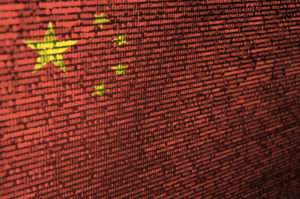The Chinese Party is making it even more difficult for outside observers to see what’s happening in the country’s economy. Liza Lin and Chun Han Wong report in The Wall Street Journal, writing:
China’s Communist Party has long maintained tight control over information, and the effort has intensified under leader Xi Jinping. The country has become increasingly opaque over the past year, even as its presence on the world stage grows.
A new data-security law has made it harder for foreign companies and investors to get information, including about supplies and financial statements. Several providers of ship locations in Chinese waters stopped sharing information outside the country, making it hard to understand port activity there. Chinese authorities have restricted information on coal use, purged documents related to political dissent cases from an official judicial database, and shut down academic exchanges with other countries.
“China has always been a big black box,” said Stephen Nagy, a politics and international studies professor at the International Christian University in Tokyo. The diminishing access to information is making it even harder for foreigners to understand what’s happening in the country, he said, “and that black box becomes even blacker.”
Companies and governments are left trying to figure out how to engage with a country whose economy is approaching America’s in size and whose military is becoming more assertive. Data from the International Monetary Fund suggests that the nation will drive much of the world’s growth over the next two years.
“There is a void about what is happening inside China, but also about its aims and goals as a nation, and this is driving mistrust,” said Cameron Johnson, a management consultant based in China, who speaks annually with lawmakers in Washington, D.C. as part of regular check-ins organized by the American Chamber of Commerce in Shanghai.
China’s increasing secrecy isn’t the result of any single policy, businesspeople and political analysts say, but rather a combination of factors: a response to the pandemic, growing concerns about data security and a political environment in which the outside world is viewed with suspicion.
The U.S. has also taken moves to partially decouple the world’s two largest economies, including limiting Chinese access to American technology and research universities through trade and visa restrictions.
Faced with increasing antagonism from the U.S. and other democratic governments, Mr. Xi has reversed course from his predecessors’ emphasis on humility and openness to focus on national pride and self-sufficiency. Once a frequent traveler, Mr. Xi hasn’t left the country since he publicly acknowledged the severity of the Covid-19 outbreak in January 2020.
Strict Covid-related border controls, including canceled flights and weekslong quarantines, have added a drastic drop in face-to-face interactions between Chinese citizens and the world, compounding the disconnect. Airlines carried around 1 million people in and out of China over the first eight months of 2021, down from almost 50 million over the same period in 2019, according to data from the Civil Aviation Administration of China.
Some Chinese looking to travel abroad say they have been denied passport renewals or been pulled aside at the airport by border officials who tried to dissuade them from going, citing government directives to minimize travel.
China’s National Immigration Administration didn’t respond to a request for comment.
Data lockdown
One driving force behind the expanding secrecy is a new data-security law that went into effect on Sept. 1, after Chinese officials grew concerned about the transfer of potentially sensitive data overseas. It subjects almost all data-related activities to government oversight, including their collection, storage, use and transmission.
Since the law was passed, companies in mainland China have grown more reluctant to share information with multinationals in strategic sectors like finance, healthcare, public transportation and infrastructure, according to Jonathan Crompton, a Hong Kong-based lawyer at the law firm Reynolds Porter Chamberlain LLP.
Authorities are ambiguous about what constitutes sensitive information, adding uncertainty for Chinese companies over what they can share with foreign partners.
Suppliers of metals like cobalt and lithium used in electronics have grown reluctant to share information with customers outside China, said one executive at a major U.S. technology company. Data the suppliers now consider sensitive includes details like how much of a given metal they have available or what percentage of their supplies are recycled, the person said, making it difficult to plan production and ensure compliance with environmental rules.
Read more here.

